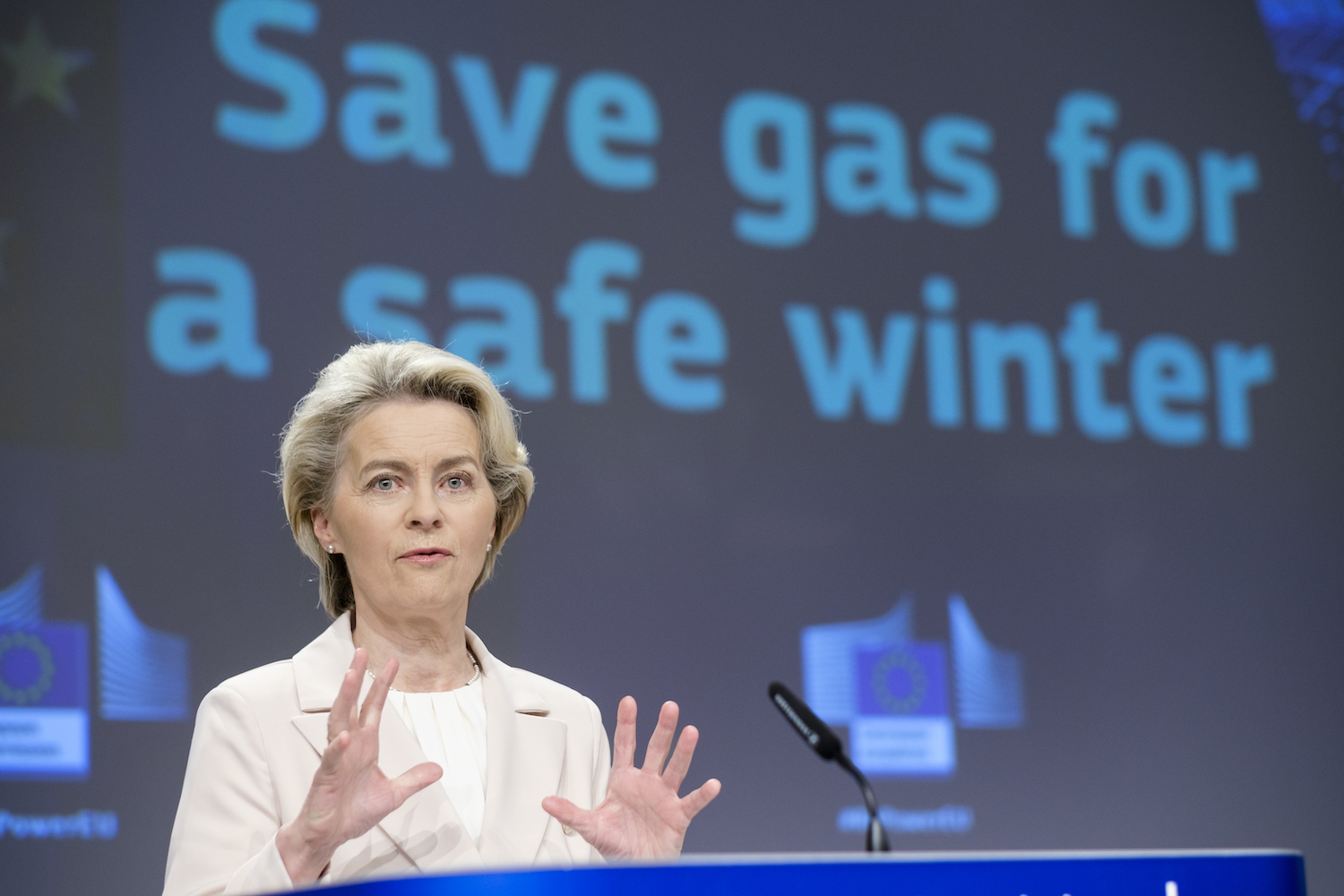What does the EU’s gas rationing plan mean for Europe?
Energy ministers backed the plan after bloc agreed to ‘water down’ restrictions

A free daily email with the biggest news stories of the day – and the best features from TheWeek.com
You are now subscribed
Your newsletter sign-up was successful
EU energy ministers have agreed to plans to reduce gas usage across the bloc this winter in a bid to protect against further supply cuts by Russia.
All 27 member states apart from Hungary are backing proposals to reduce gas consumption by 15% from August to March. But the number of exemptions demanded by EU nations has forced the European Commission to “water down” its original plan, said The Guardian.
The Commission had hoped to slash total gas consumption by 45bn cubic metres, but is unlikely to come near to that target owing to opt-outs for nations whose reliance on Russian gas is minimal. However, the reductions would still add up to “significant reductions”, an unnamed “senior EU diplomat” told the newspaper.
The Week
Escape your echo chamber. Get the facts behind the news, plus analysis from multiple perspectives.

Sign up for The Week's Free Newsletters
From our morning news briefing to a weekly Good News Newsletter, get the best of The Week delivered directly to your inbox.
From our morning news briefing to a weekly Good News Newsletter, get the best of The Week delivered directly to your inbox.
What was agreed?
The revised plan was passed at a meeting in Brussels on Tuesday, just 24 hours after Russian state-controlled energy firm Gazprom announced that natural gas supplies to Germany through the Nord Stream 1 pipeline would be cut by 20% from Wednesday.
The draft law “entails voluntary national steps to reduce gas consumption, but if that does not yield enough savings, mandatory actions in the 27-member bloc would be triggered”, Associated Press reported.
The European Commission is “eager to maintain a common EU front” amid fears that Moscow may halt all gas deliveries to EU nations as the fallout from the Russia-Ukraine war continues, the press agency added.
EU Energy Commissioner Kadri Simson said that the agreement on the gas-reduction plan, first put forward by the Commission last week, was a “test for the unity and resolve of the union”.
A free daily email with the biggest news stories of the day – and the best features from TheWeek.com
The EU has already agreed to a partial embargo on Russian oil and coal, but the cut to gas use has stalled because of the heavy reliance of countries including Germany on Russian imports.
Who opposed the plan?
The agreement on gas reductions faced significant opposition within the bloc.
Having opted out of the oil embargo, Hungary also rejected the gas rationing plan after requesting earlier this month to buy more gas from Russia. Hungary, which is about 85% dependent on Russian gas, “has maintained what it calls pragmatic relations with Moscow since Russia’s invasion of Ukraine” and “firmly opposes the idea of any EU sanctions on Russian gas imports”, reported Reuters.
The loudest calls for revisions to the Commission’s plan came from southern European countries that would be least affected by Russian supply cuts. Spain and Portugal, backed by France, argued that it was illogical to enforce a uniform cut given that their reliance on Russian gas was minimal.
These countries are “effectively isolated from the wider European market” and are “not vulnerable to a Russian disruption”, explained research analysts Ben McWilliams and Georg Zachmann of economic policy think-tank Bruegel in an article for business news site bne IntelliNews,
Spain’s Ecological Transition Minister Teresa Ribera told Politico that reducing the cuts to less than 15% made more political sense than “forcing countries to go along kicking and screaming”.
The agreement reached this week paves the way for Spain and Portugal to seek a gas cut obligation of just 7%, “on the grounds that the Iberian Peninsula’s puny pipelines to neighbouring France prevent it from sharing much gas”, the news site reported.
Ireland, Malta and Cyprus will get a “full pass” from meeting the gas reduction targets, “on the grounds they aren't linked up to the Continent’s gas grid at all”. And Greece and other countries heavily dependent on gas for electricity won't have to cut usage if they face an energy supply crisis.
Lithuania, Latvia and Estonia would also be allowed to continue using gas freely if Russia switched off supplies to former Soviet nations still linked to its power grid.
What will the cuts mean in practice?
The current agreement allows each member state to choose how, or if, to cut consumption.
Germany has already begun cutting back on gas use. Hot water has been “turned off in many public buildings” and “lights have been dimmed”, and public fountains “lie still”, The Washington Post reported.
Economy and Climate Minister Robert Habeck told the paper that his ministry had been “overrun with ideas” on how to save energy and that “a lot has already changed”. The level of action required though will “depend on how cold the winter gets”, he said.
In France, the authorities are proposing to save energy by “turning down office thermostats in winter” and ensuring that public buildings and shops use air conditioning “more efficiently”, reported Associated Press.
But how or if other members nations will achieve the cuts is largely unclear.
Richard Windsor is a freelance writer for The Week Digital. He began his journalism career writing about politics and sport while studying at the University of Southampton. He then worked across various football publications before specialising in cycling for almost nine years, covering major races including the Tour de France and interviewing some of the sport’s top riders. He led Cycling Weekly’s digital platforms as editor for seven of those years, helping to transform the publication into the UK’s largest cycling website. He now works as a freelance writer, editor and consultant.